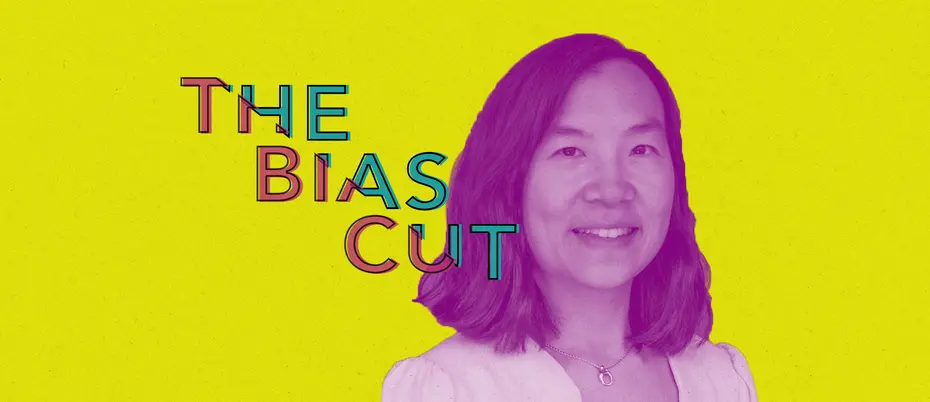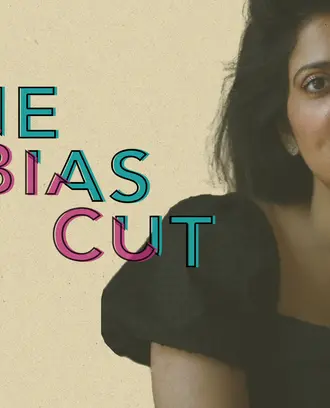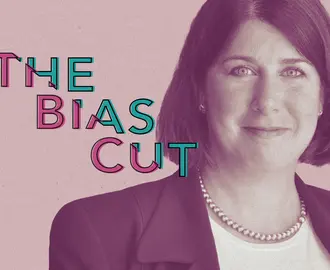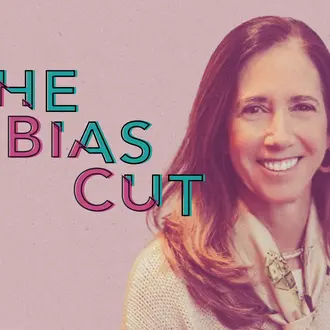The Bias Cut
Forging a path from PhD to MD to Amazon Web Services advisor
“Deviating from a computer science academia path to pursue medical school was not what people expected me to do, but it was what I felt passionate about.”
A 2021 women’s leadership study from LeanIn.org and McKinsey & Co. found that American women held 41% of corporate management positions, and women continue to fight underrepresentation when it comes to board positions and CEO roles. They also face gender bias, harassment, and opposition to their management styles.
Here’s how one MIT alumna has pushed back on those statistics and used what she’s learned along the way to help those behind her.
Christine Tsien Silvers; SB ’91, SM ’93, PhD ’00, MD ’01 (Harvard Medical School), clinical informatics leader and health care executive advisor at Amazon Web Services
In what ways is your professional life as a woman in the workplace different from how you imagined it would be when you started your career?
When I started my career, I worked about eight per diem emergency department shifts per month as a way to feel personally fulfilled with my professional life while also being able to focus on raising my family.
And that dream lifestyle was one that I could not even have fathomed during my undergraduate studies: I spent seven years completing the Harvard-MIT Health Sciences and Technology MD program while also finishing my MIT Course 6 PhD, and then four years of emergency medicine residency at the Massachusetts General Hospital/Brigham and Women’s Hospital combined program.
During the first 10 years of my career, I worked part time and took my three children on frequent explorations of area museums, zoos, parks and more, which provided wonderful balance. Although I had initially thought I would keep working part time forever, eventually I felt that I had to work full time to have not just more time to do work but greater impact in what I do professionally.
As my children have gotten older (18, 15, and 12), their needs have also changed, allowing me to return to full-time work. Today I serve as a health care advisor for academic medical centers looking to innovate with cloud technologies.
Who was an ally or mentor for you as you’ve navigated your career? What made that person stand out, and how specifically did they help you get to the next level of your professional development?
My MIT thesis advisor Peter Szolovits allowed me the flexibility to finish pre-med classes while exploring research at the intersection of computer science and medicine. Without learning about the research being done in his group at MIT, I would not have gotten involved in the health care technology, artificial intelligence, machine learning area that I later pursued.
The two other individuals who stand out are Zak Kohane and Cindy Crump. Zak, also an MD with computer science PhD, co-advised my dissertation and has been a mentor and friend for over 25 years. When I wanted to focus on raising a family while working occasional emergency department shifts, Zak was supportive but convinced me to keep up with writing and publishing. Throughout the years, he has continued to provide support, always willing to listen to my concerns and offer suggestions.
Cindy reached out to me when I had just finished residency, saying that she had read my dissertation on automated trend analysis in time-series data (e.g., intensive care unit data) and hoped that I could consult for her new company. It was Cindy’s persistence that opened my eyes to the health care technology industry and Cindy’s belief in me that propelled me to [advising] executives in C-suites.
Can you give an example of a time you’ve experienced or witnessed gender bias? How did it affect you professionally? What impact did it have on your job?
During my third year of residency, my husband and I wanted to start our family because I was already 34 years old. When I was pregnant, I discussed with the residency program what options I might have. We couldn’t see eye to eye, and at one point the residency director suggested I just quit the residency. Eventually we came to an agreement, which included my making up every single shift that I was to miss during my maternity leave — including finishing residency about six weeks after the usual graduation date. The slight delay did not affect me professionally, but leaving residency without completing it would definitely have affected my career. After my maternity leave, a number of my fellow residents sought me out to confide in me and discuss their own concerns.
How do you support women coming up behind you?
I served for three years on the admissions committee for the Harvard-MIT Health Sciences and Technology MD program, and continue to mentor women through an organization called CSweetener, which strives to improve gender equity in health care leadership.
I’ve been a mentor with the Graduate Women at MIT and volunteered with the MIT Society of Women Engineers. When I graduated from Mounds View High School, scholarships were enormously helpful for financing my MIT education. In 2005, after completing my education and training, I established the “Thank You Scholarship” to give back to my high school because I was so grateful for the financial support I received.
What is the most difficult lesson you’ve learned in your professional life? In what unexpected ways did you grow from it?
It is ok to have interests and goals that are different from those that seem mainstream or expected. Deviating from a computer science academia path to pursue medical school was not what people expected me to do, but it was what I felt passionate about.
It was considered unusual to work only per diem emergency department shifts in the community instead of pursuing a full-time academic medicine position after graduating from Harvard, but those years were incredibly meaningful for me, my family, and my community. Pursuing what I enjoy and trying to do my best at those pursuits not only has been integral to my life and my career path, but also makes “work” fun.
Read next: This Flex exec helps women find their voice in big organizations




